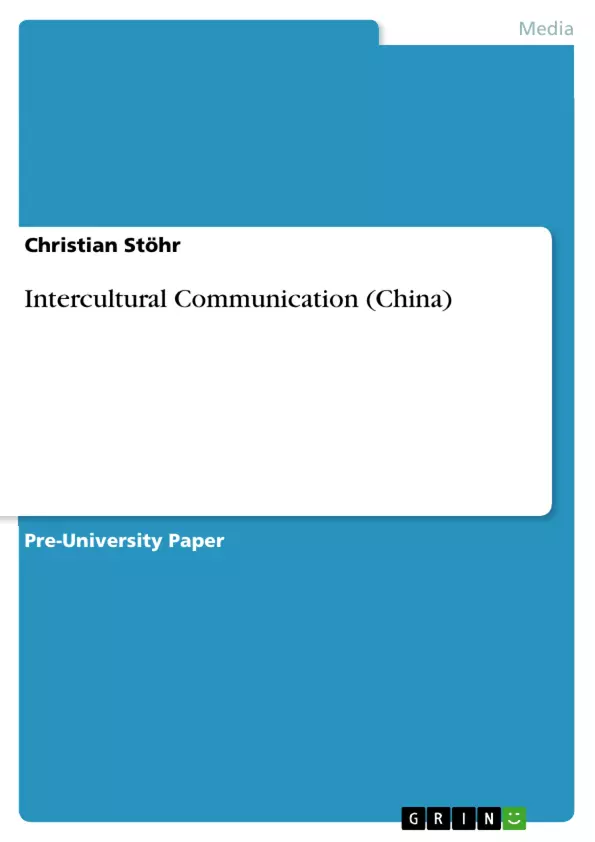The increasing internationalization and globalization has made international competence more significant than ever before. Companies working together but each located in other cultural areas need to understand each other. Great business connections are the key to success and maximized profits. Both partners have to use the right way of Intercultural communication not to mess up these connections.
Inhaltsverzeichnis (Table of Contents)
- Introduction
- Regarding China
- The Guanxi 关系
- The Mianzi 面子
- Never say "never"!
- Go, get something to eat!
- Greeting
- At the table
- Finishing the meeting
- What we have learned
- Sources
Zielsetzung und Themenschwerpunkte (Objectives and Key Themes)
This paper explores the significance of intercultural communication in the context of globalization and international business. It emphasizes the importance of understanding cultural differences and nonverbal communication in facilitating successful business relationships.
- The role of nonverbal communication in intercultural communication
- The importance of cultural awareness and sensitivity in business dealings
- The impact of cultural values and norms on communication styles
- The concept of "culture" and its subjective nature
- The significance of intercultural communication in navigating business deals across cultures
Zusammenfassung der Kapitel (Chapter Summaries)
- Introduction: This chapter defines intercultural communication as a wordless language employed at cultural contact and highlights its significance in today's globalized world. It emphasizes the importance of understanding nonverbal communication and how it plays a crucial role in intercultural encounters.
- Regarding China: This chapter delves into specific cultural aspects of China, including the importance of Guanxi, Mianzi, and cultural nuances in communication, dining, and business interactions.
Schlüsselwörter (Keywords)
Intercultural Communication, Globalization, Nonverbal Communication, Culture, Cultural Awareness, Business Relationships, Guanxi, Mianzi, Chinese Culture.
- Quote paper
- Christian Stöhr (Author), 2011, Intercultural Communication (China), Munich, GRIN Verlag, https://www.grin.com/document/182144



